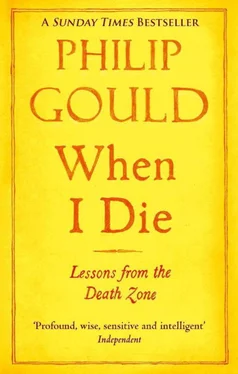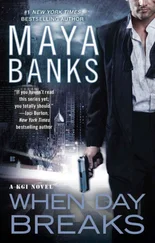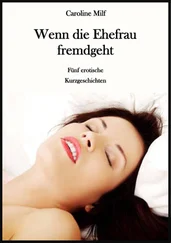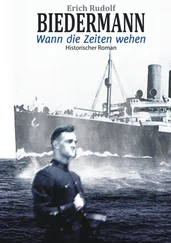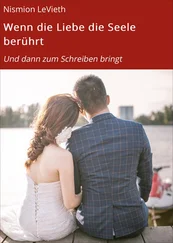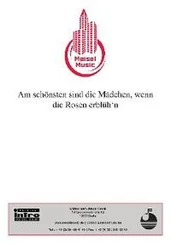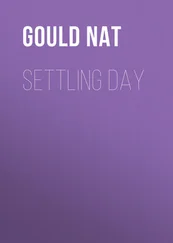With his return to a routine, I thought it would be safe to go to the Jerusalem Book Fair, something which I had promised the organiser, Zev Birger, I would do for many years. One of our authors, Ian McEwan, had been invited to receive an award and that decided me. I left Philip with Georgia and Grace, and a nurse, and set off. I was sitting on the plane when Philip called and told me not to panic – never a good sign. He had pulled out the feeding tube and he and Georgia were at UCH, with Newcastle explaining what had to be done. If you fed a tube back into the channels left by the old one within hours, they were told, it would avoid another operation, and a great Italian emergency care doctor was able to do just that. But I worried all the way to Jerusalem.
The tube became a feature of our lives for several months, with many trips to UCH, until after the radiotherapy when Philip pulled it out once and for all.
Thanks to the medical staff in Newcastle we had a year that would otherwise not have happened. We even managed a summer holiday in Italy, staying in two extraordinary hotels, a dream of Philip’s for many summers. But all was not well. When you live close to illness, sometimes it takes a change of scenery to notice changes closer to home.
Philip did eat for the first week but he was getting thinner. He was almost skeletal. The second week he could hardly keep any food down and I was almost relieved that he spent all his time finishing off the update of The Unfinished Revolution , sometimes trying to work alongside me in a flurry of papers. I knew he was very ill, but there would be a time and a place to face all that.
When we arrived home, the tumour markers exploded and that was that. Devastating. Blind panic. I said to a friend at the time I felt we were speeding towards a brick wall – but in slow motion. I had no idea how to cope with the impending collision.
Professor Cunningham recommended palliative chemotherapy, but before that started we needed to reinstate the feeding tube.
As Philip describes, it was one of the worst post-operative weeks. The surgeon who performed the operation had gone to China and we had a strong sense of an endgame being played out where different views clashed. In the end, as difficulties mounted, the hospital stopped all food.
Constipation became a problem but they could not give Philip anything for it in case there was an internal leak. He could not take in any food through the tube as his system was backed up. A macabre catch-22. I longed for Jervoise Andreyev to suggest a way forward, but he was on half-term break. When he returned we had at least established there was no leak; he prescribed a purge, after which things reached a kind of equilibrium.
This brought us to the three days of reckoning between Philip and me. I remember coming in one day to the Marsden and finding him very low. It was as if the gravity of the situation had defeated him. It was the first time I had seen him so sad about what was happening and it devastated me.
There had been many times throughout the previous four years that Philip had been in pain, brought low by discomfort, but he had always held out hope – reframed the situation to eke out a tiny piece of positive news. But now his illness was closing in on him – on us all – and, for a moment, he was deeply upset.
Philip had written and spoken a lot about purpose, and in particular the purpose of his cancer, but at that moment there seemed to be no purpose – just sadness and loss.
I think all the symptoms he had been suffering took it out of him. As I watched him suffer I would hate being powerless against the forces that had taken over his body. Little is invested in symptom control for cancer sufferers, and not a lot is written. Most hospitals, including the Marsden, have excellent palliative care units which deal expertly with pain control and the symptoms of the dying, but until you are on their horizon it is a hit and miss affair.
Sickness, as a side effect of chemotherapy, is well catered for, but little money goes into Dr Andreyev’s area of expertise: the whole gamut of digestive problems arising out of chemotherapy and radiotherapy. It is a miserable list of complaints if ever there was one, and the subject is not often talked about.
Dr Andreyev’s work is not curative, but if followed diligently the simple drug routine he offers can transform lives, as it did Philip’s. Professor Griffin was very interested in Dr Andreyev’s work for his centre, which is why this is one of the two charitable causes that any royalties from this book will help fund.
Philip had always lived his adult life with a plan. It was sometimes invisible to those closest to him but he was normally working on several levels at the same time, playing a long game. This combined with the extraordinary instinct and insight which was his unique gift. His focus groups would be so effective because he not only observed people but got to their motivations, probing until he dragged out the deeper sentiments that characterised their world view beneath the surface flow of opinion.
He would have this effect even on people he met only briefly, as so many letters after his death have testified. In just a short, intense conversation with someone he could arrive at the fundamental truth about them and their purpose and provide an insight or direction that could transform their lives. I keep meeting people – most recently in the departure lounge of Delhi airport at three in the morning – who have stories to tell of Philip’s transformative power.
Friends, too, speak of how generous he was with his time – always counselling wisely, getting to the essence of a person and giving them the confidence to achieve what they wanted, and of course giving brilliant advice. In fact, in his last years, while working with Matthew Freud, he mentored a series of politicians, academics and business leaders, moving effortlessly between them until he was too ill to travel. Even then, they would come to him.
Philip’s game plan on the matter of his death was not immediately apparent to me or the girls. We knew about his renewed search for purpose but did not know that he was about to go public on death and dying.
I knew he was doing two interviews for the publication of The Unfinished Revolution . After being interviewed by Andrew Marr, he called me to say that he thought it had gone well but that there had been a question about his illness at the end; he had got into some ‘deep stuff’, he said, but did not think it would be broadcast. It was, therefore, a huge shock for us all when we watched the interview on television that Sunday. We were all in tears.
When he gave an interview to Simon Hattenstone of the Guardian , whom I regarded as a master of cutting personal remarks about his subjects, I was uncomfortable. I thought Philip a bit vulnerable in that department and I had become more and more protective of him as his health declined. Yet again Philip was the king of understatement. The interview had largely been about the book, he said, ‘but I got into some heavy stuff about death’.
This interview too turned out to be intensely personal. Too much so for me, but it was incredibly powerful and is often referred to in people’s letters. It touched a lot of lives, as did the interview with Andrew Marr. Simon made a profound connection with Philip and they became friends, even exchanging texts about football. I remember one coming in the day before he died.
The next part of the plan revealed itself through Adrian Steirn, who had teamed up with Matthew Freud on a project about iconic figures both in South Africa and worldwide. Adrian was a remarkable photographer and film-maker and he wanted to photograph Philip and interview him about death. They decided the photograph would be taken at his grave at Highgate Cemetery.
Читать дальше
